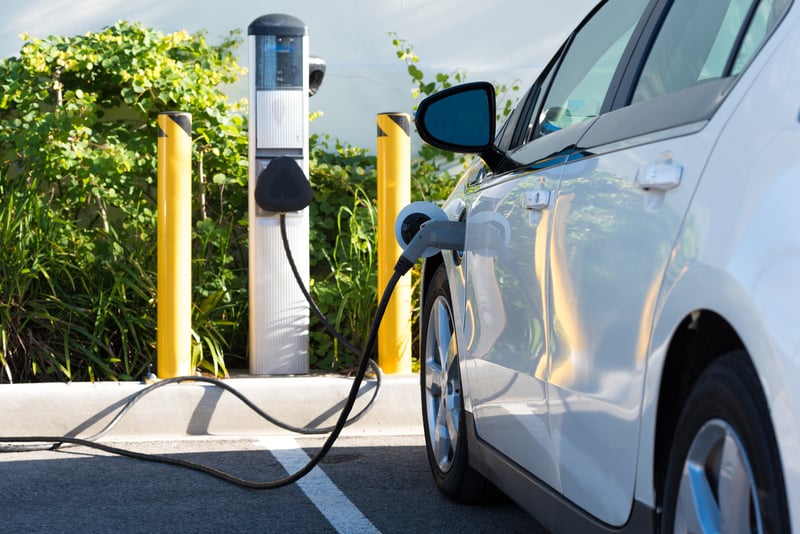TRENTON, N.J. — The New Jersey Coalition of Automotive Retailers (NJ CAR) on Thursday praised the U.S. Senate’s approval of three Congressional Review Act (CRA) resolutions that would nullify electric vehicle (EV) mandates adopted by New Jersey based on California regulations.
The resolutions — H.J.Res. 88, H.J.Res. 87, and H.J.Res. 89 — target federal policies that allowed states like New Jersey to adopt California’s zero-emission vehicle rules without direct legislative approval.
The U.S. Senate voted 51-44 to block California’s landmark plan to phase out the sale of new gasoline-powered vehicles by 2035, effectively nullifying a Biden-era Environmental Protection Agency (EPA) waiver that allowed California to enforce stricter emissions standards. The resolution, which now heads to President Donald Trump’s desk for his signature, marks the first time in 50 years that Congress has challenged California’s authority under the 1970 Clean Air Act to set tougher environmental rules than federal standards. The vote was a significant victory for the oil and gas industry and Republican lawmakers, who argued that California’s policy restricted consumer choice and imposed unaffordable electric vehicles (EVs) on Americans.
However, California Governor Gavin Newsom and state leaders condemned the decision as illegal, vowing to challenge it in court, arguing that it undermines decades of precedent and the state’s efforts to combat air pollution and climate change
“NJ CAR applauds the U.S. Senate for passage of three Congressional Review Act (CRA) Resolutions that will end the impossible EV auto and truck mandates created for California but adopted in New Jersey without a vote by our legislature,” said Laura Perrotta, president of NJ CAR.
The organization, which represents franchised car and truck retailers in the state, emphasized that the Senate vote protects consumer choice and prevents the elimination of gas-powered and hybrid vehicles from New Jersey dealerships after 2035.
The Senate’s decision followed a bipartisan House vote on May 1, 2025, where 246 lawmakers, including 35 Democrats, supported a resolution to repeal the EPA waiver, highlighting divisions even among Democrats on California’s ambitious climate policy. Critics, including automakers like General Motors and Toyota, as well as fuel producers, argued that the ban would disrupt the national auto market, given California’s outsized influence as the largest auto market in the U.S. and the adoption of its standards by 11 other states.
Supporters of the repeal, such as Representative Kevin Kiley, celebrated the vote as a win for “common sense” and individual freedom, claiming it prevented California from dictating national vehicle policies.
Evironmental advocates and California officials warned that overturning the ban would increase air pollution, exacerbate health issues like asthma, and hinder progress toward reducing greenhouse gas emissions, which transportation significantly contributes to in the state.
Perrotta added that the mandates “go too far too fast,” citing concerns over affordability and the state’s EV infrastructure. “New Jersey residents will now be able to choose the type of vehicle they buy, at a more affordable price,” she said.
Concerns raised over infrastructure and consumer readiness
NJ CAR has previously criticized the mandates, saying the aggressive shift to all-electric vehicles lacked adequate support. The group pointed to data from the Division of Consumer Affairs, which shows New Jersey ranks last in the nation in terms of EV charging station availability per vehicle.
The state reportedly has just 16 charging stations per 1,000 registered EVs, a ratio NJ CAR says highlights the state’s lack of preparedness for a full-scale transition to electric transportation.
New Jersey’s ban was modeled after California’s 2035 gas car ban, initially set in motion by Governor Newsom’s 2020 executive order and formalized by the California Air Resources Board in 2022, aimed to transition all new passenger vehicle sales to zero-emission models, such as EVs and hydrogen-powered cars, to address the state’s severe air quality issues and climate goals. The policy allowed up to 20% of sales to be plug-in hybrids and did not affect used car sales or existing gas-powered vehicles.
While the Senate’s vote deals a major blow to these efforts, California’s planned lawsuit could prolong the legal battle, potentially shaping the future of EV adoption nationwide. Posts on X reflect polarized sentiments, with some users hailing the vote as a defense of consumer choice, while others, including Newsom, decried it as a setback for clean air and public health.
Though the CRA resolutions have passed the Senate, they still require action in the U.S. House of Representatives and may face a presidential veto. The resolutions challenge the Environmental Protection Agency’s waiver process, which had allowed California’s strict emission rules to extend to other states.
NJ CAR stated that while it supports EV adoption, dealers should not be barred from offering a full range of vehicle options, including traditional internal combustion and hybrid models.
“Car buyers weren’t ready for these aggressive mandates and the elimination of vehicle choice,” the group said in its statement.
NJ CAR says Senate vote blocks forced EV shift and defends vehicle choice in New Jersey.
